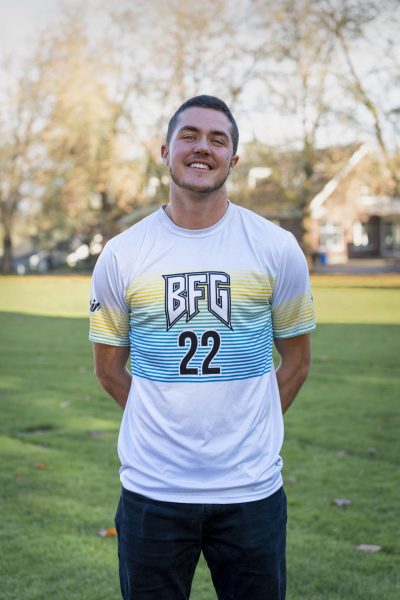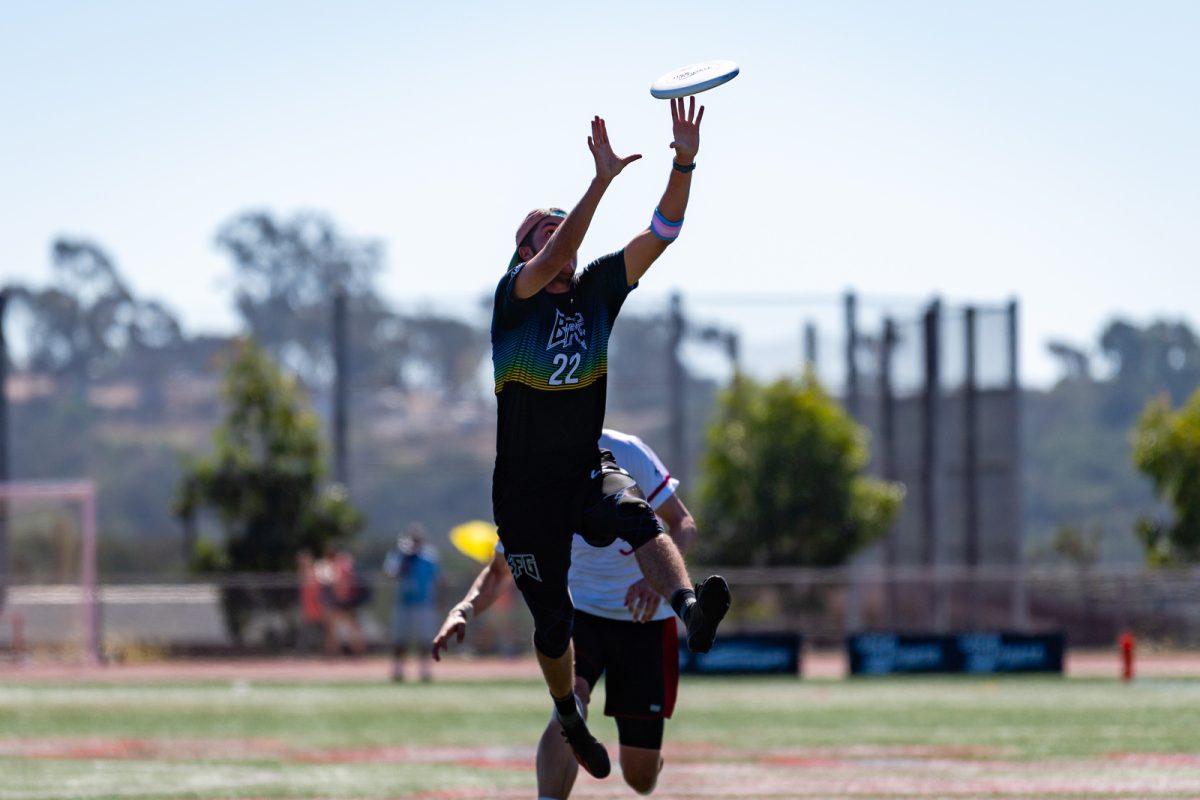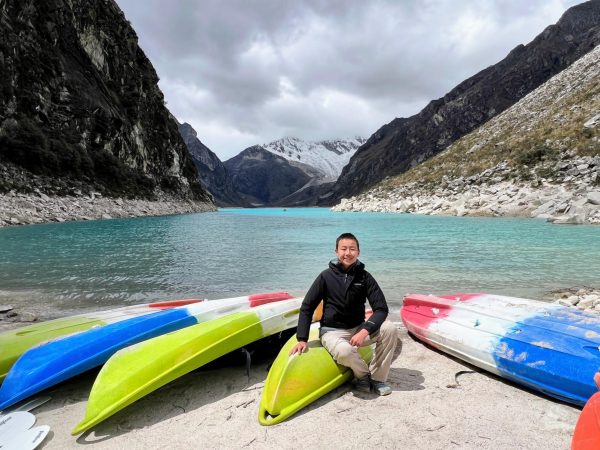When not grading assignments or facilitating discussions on topics like the Lavender Scare in his Queer United States elective, Mr. Verzuh is out on the field jogging and relentlessly passing discs. He’s playing ultimate frisbee, a sport that has dominated much of his young and adult life. His first exposure to the sport was in middle and high school, when he himself was a student at Lakeside. During high school and college, he was selected to represent the U.S. team in the world championships. After four years of competing for our school, he went on to play for Dartmouth’s Division I ultimate team, where his team won two national championships.
Today, Mr. Verzuh continues to play professionally for clubs around Seattle and coaches Lakeside’s girls ultimate team. Most recently, though, Mr. Verzuh was honored with an appointment to the U.S.A ultimate’s LGBTQ+ advisory board, which consists of four members from the LGBTQ+ community who are tasked with helping work on diversity in sports for queer athletes as part of America’s national ultimate frisbee governing body. It’s a mission that Mr. Verzuh, a queer athlete himself, thinks still has a long way to go.
“We see right now in the country sports being used to target specifically transgender athletes and people in general … to sort of uphold our larger systems of the gender binary,” he explained.
We see right now in the country sports being used to target specifically transgender athletes and people in general […] to sort of uphold our larger systems of the gender binary.
— Mr. Verzuh
Nevertheless, as a coach, player, and now member of the board, he has big hopes for improving the team-based and inclusive culture of ultimate that has allowed him to build community and meet people he “would’ve never ended up being friends with.”

For Mr. Verzuh, it all starts small with his coaching: “[M]y goal when I’m coaching … is to think about expanding the positive aspects of sports where we’re bringing people in and giving them [the] opportunity to play, have fun, and meet people while also breaking down some of the more harmful, or dangerous, or kind of toxic elements of the way that sports are used.”
He noted that Lakeside has made a good start on this healthier form of coaching by valuing athletes as people first – an idea he credits to Athletics Director Christ Hartley. In doing this, Mr. Verzuh explained, the school has helped promote environments that make athletes feel “welcome, supported, and celebrated.”
Still, on the national level, a change in coach culture can only do so much, especially for extant gender binaries in sports. Mr. Verzuh also believes that a huge step forward for the nation would be more inclusive spaces for non-binary athletes.
“I think that creating more spaces for non-binary athletes to … be on teams and be challenged and celebrated just like students who hold binary identities is a really exciting possibility right now,” he commented. “[It] will … break down a lot of our big ideas about gender and sports [and] force people to expand the way that they think about sports and gender.”
When asked about the opposite side of the argument – that which insists on binary sports – Mr. Verzuh grinned and asked, “Are we separating people by gender out of habit or fear? … When is that more a reflection of our fears or stereotypes than it is the kind of reality of the situation?” In cross country, people sometimes run together, regardless of gender. Ultimate is also unique in the sense that it has a mixed division alongside a men’s and women’s division.
Are we separating people by gender out of habit or fear? … When is that more a reflection of our fears or stereotypes than it is the kind of reality of the situation?
— Mr. Verzuh
“There’s often these kinds of stereotypes or myths that men are always better at sports than women, or boys are always better at sports than girls. And then that becomes really pervasive. But when we actually look at reality in people’s bodies, there’s just like a really wide range of different talents and skills in everybody.”
To this last point on common misconceptions around binary sports, Mr. Verzuh challenged Lakesiders to “pause internally and reflect on what they have internalized from the messages that they are receiving about gender.” In doing so, he explained, they can gain a better sense of how their own gender identity intersects with athletics and how they can better challenge the binary of sports in their everyday lives.
In fact, Mr. Verzuh noted that this same sort of reflection has led him to rethink how he can advocate for queer athletes on the field. “I don’t need to prove things by beating people on the field,” he said. “I have since reframed for myself that being an athlete who is … experiencing joy and committing to myself and my values visibly is enough.”



